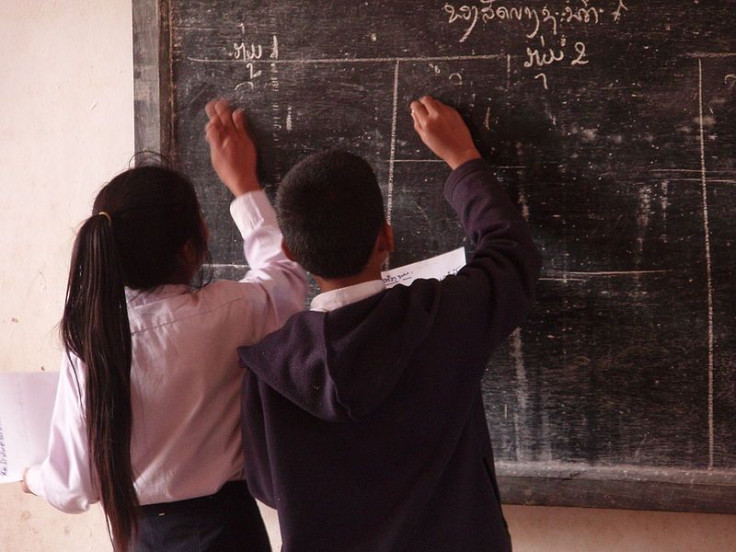Dustless Chalk May Cause Allergic Reaction Similar To Milk Allergies

Children with milk allergies may want to sit at the back of the classroom, according to researchers who say a protein in dustless chalk may induce the same allergy- and asthma-like symptoms in kids who are allergic to milk.
Allergies to cow milk are caused by proteins in the milk that confuse the body's immune system, making it work over time. Cells in the body, in turn, produce histamine to fight the invaders which provokes the allergic reaction.
Casein is one of these proteins. According to a study published in the scientific journal Annals of Allergy & Immunology, the same protein is used in the low-powder chalks preferred by most teachers these days. Annals of Allergy & Immunology is the scientific journal of the American College of Allergy, Asthma and Immunology (ACAAI).
"Our research has found when the particles are inhaled by children with milk allergy, coughing, wheezing and shortness of breath can occur. Inhalation can also cause nasal congestion, sneezing and a runny nose," Said Dr. Carlos H. Larramendi, the study's lead author.
The ACAAI reported that 300,000 children in the United States are affected by milk allergies, which can be confused with lactose intolerance. However there is a clear distinction between the two: milk allergies affect the immune system and lactose intolerance affects the digestive system.
A common misconception with milk allergies is that symptoms will ease up by the time the child turns three. Recent studies have debunked this theory, showing that 80 percent of children with milk allergies will have symptoms that linger until they are around 16.
Chair of the ACAAI Indoor Environment Committee, Dr. James Sublett said the allergy threatening protein may not be just confined to the chalkboard.
"Milk protein can also be found in glue, paper, ink, and in other children's lunches," said Sublett. "Teachers should be informed about foods and other triggers that might cause health problems for children. A plan for dealing with allergy and asthma emergencies should also be shared with teachers, coaches and the school nurse. Children should also carry allergist prescribed epinephrine, inhalers or other life-saving medications."
Published by Medicaldaily.com



























